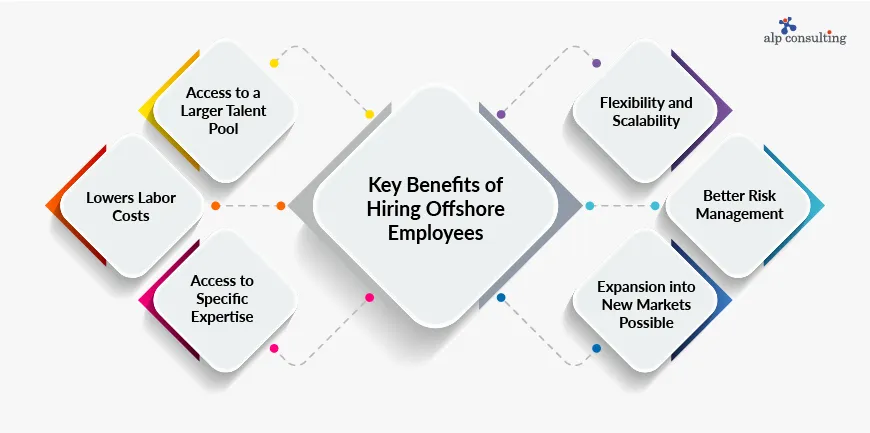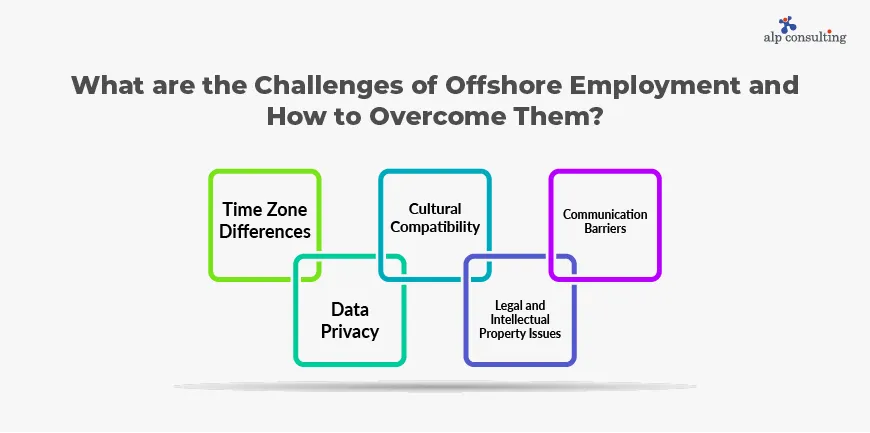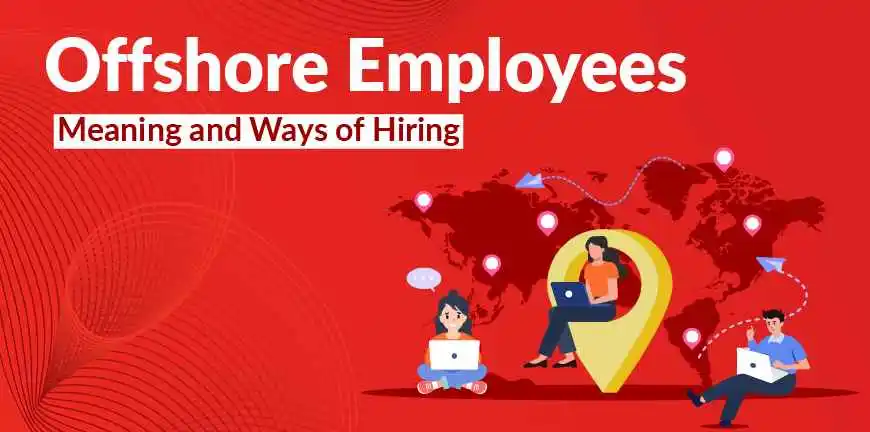
What is Enterprise Recruitment? Process, Challenges
25/12/2024
5 Workplace New Year Resolutions Every Employer Must Make
27/12/2024Offshore employee hiring is a critical business process for any company, as many projects require a special set of skills or background to manage them. Hiring offshore employees is no longer about how it used to be, that of hiring people at low costs to save money on a project. Today, people see offshore employees as prestigious assets, ones they will never give up easily and value from day one.
Who is an Offshore Employee?
An offshore employee is a person who works for someone outside their home country. He/she may be paid in the local currency. The laws of the country where they are situated will most certainly apply to your offshore employees.
What are the Key Benefits of Hiring Offshore Employees?
Previously, businesses used to hire offshore employees to lower labor costs, gain a reputation in another geography, and to secure good talent at a cost-effective rate, but today offshore hiring is about much more than that. Let us look at some of the benefits of offshore employees in your team.

1. Access to a Larger Talent Pool
Hiring offshore employees gives companies access to a much wider talent pool. This is why offshore staffing agencies are preferred to hire offshore employees.
2. Lowers Labor Costs
There is a considerable lowering of labor costs when hiring offshore employees from developing countries, and they may even have significantly more experience.
3. Access to Specific Expertise
Offshore employees have special skills that others in your company may not have, and they are hired for this reason. They would also serve as mentors to members of your team who are picking up these skills.
4. Flexibility and Scalability
Offshore employees will be available to work at different schedules and it allows you to talk to interact with clients at odd hours and the project continues to progress. You can work on multiple projects at the same time, and maybe even take on new responsibilities.
5. Better Risk Management
Even if a very important employee leaves, you will continue to have offshore and remote employees working for you, which enables you to manage risk better.
6. Expansion into New Markets Possible
When you hire offshore employees, you are also making your business known in those markets and you can build on your reputation.
What are the Challenges of Offshore Employment and How to Overcome Them?

1. Time Zone Differences
Differences in time zones can hinder communication and continuity in work, lead to delays in project timelines, and upend clients.
2. Cultural Compatibility
It is difficult to achieve a great cultural fit in the workplace when you have a good number of offshore employees, especially when they are well distributed around the globe. Making employees feel included can help.
3. Communication Barriers
This is another big challenge to people easily recommending offshore employee staffing. Communication barriers due to issues with language or miscommunication can pose difficulties.
4. Data Privacy
When a business hires across borders, data privacy becomes a serious concern. It is possible that offshore employees may leak critical data pertaining to the company’s employees or systems.
5. Legal and Intellectual Property Issues
When employing from offshore, it is necessary to ensure that the intellectual property rights are protected, legal jurisdiction pertaining to the offshore employees is addressed by the legal counsel, and so on.
How to Hire Offshore Employees: A Step-by-Step Guide
1. Clearly Define Business Goals and Expectations
What are your company’s end goals and what expectations do you hold from the offshore employees you want to hire to support your work? Ask yourself these questions.
2. Translate These Expectations into Job Descriptions
Once you know what to expect from your offshore employees, you can then translate these expectations into job descriptions.
3. Allocate a Budget for Your Offshore Staffing
Consider all the allocations you want to make for the hiring process and even the onboarding and other formalities.
4. Choose an Offshore Staffing Partner
Find an offshore hiring partner who is within your budget and supports the country that you want to hire from and is very much aware of the job market there.
5. Discuss Service and Support Options
Discuss what services you will need from the offshore recruitment partner and enquire how they will support you during the process.
6. Implement a Rigorous Selection Process
Approach the selection of the candidates with a rigorously developed process from your end. Make sure that you include sufficient skill-based and behavioral analysis assessments to get the right talent.
7. Check References and Past Work Experiences
In this step, the staffing partner will help check the accuracy of the references provided by the candidate and look at past work experiences
8. Manage Onboarding for Offshore Employees
Onboarding for offshore employees will usually be done by the staffing partner with the cooperation of HR in your company. Both will work together to ensure every offshore employee has smooth onboarding.
9. Conduct Training to Get Them Acclimatized with Business
There will be several business processes that will require introduction so that the new hires are productive a few days or a month into employment. The right kind of training for offshore employees can be a game-changer.
10. Consider a Trial Period
When you hire offshore employees for your business, consider placing them on a trial period for a few weeks before you commit to working with them for a longer term. Discuss this with your offshore hiring partner as well.
Frequently Asked Questions
1. What are offshore employees?
Offshore employees work for your business while still being in another country generally being paid in their local currency and adhering to the rules and regulations of the country they belong to.
2. What are the benefits of hiring offshore employees?
There are several benefits of hiring offshore employees. Hiring offshore employees is cost-effective, and brings in special skills and much-needed diversity and innovation that your team and business can be proud of.
3. What is the cost of hiring offshore employees?
The cost of hiring an offshore employee will depend greatly on the skills that are in demand, the duration of work on a daily or weekly basis, the country the employee belongs to, and the experience that the employee brings with him/her.
4. What challenges come with hiring offshore employees?
Hiring offshore employees brings with it a few significant challenges. It can lead to communication barriers that may be difficult to overcome, issues in cultural fit, etc. But most of the challenges can be overcome with good planning.
5. How do I onboard offshore employees effectively?
To onboard offshore employees effectively, maintain the policy documents in the employee self-service portal and make it accessible to them, assign mentors to train in vital business processes, and check in regularly to see how they are performing and if they have gelled with the rest of the team.
Contact Us For Business Enquiry

Rajkumar Shanmugam
Rajkumar Shanmugam is the Head of HR at ALP Consulting, bringing over 19 years of comprehensive HR leadership experience across India and international markets. His expertise spans talent acquisition, employee relations, performance management, compliance, and HR transformation. Rajkumar has a proven track record of driving people-centric initiatives, enhancing workplace culture, and aligning HR strategy with business goals. With extensive experience in US staffing operations and global mobility, he continues to lead organizational excellence through innovation and employee engagement.




